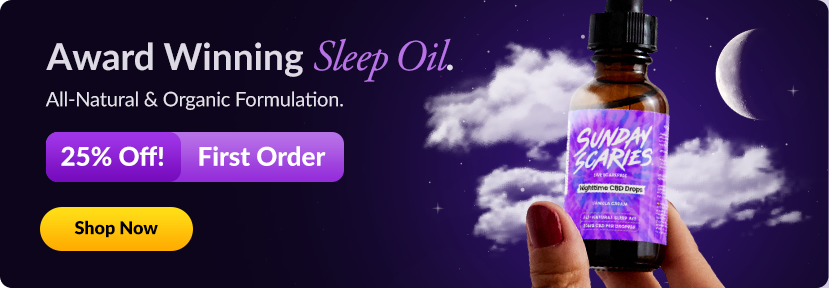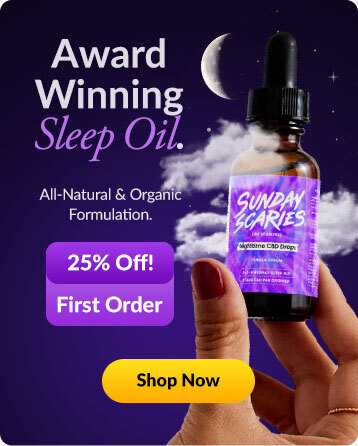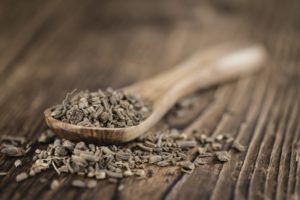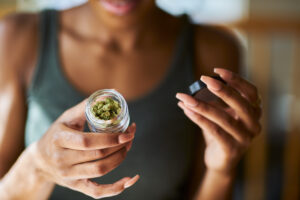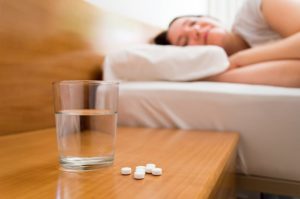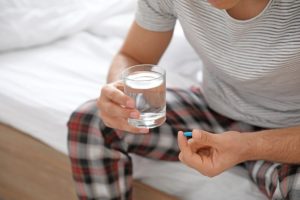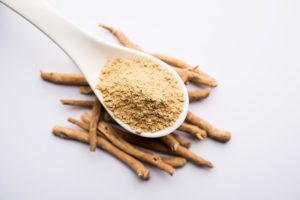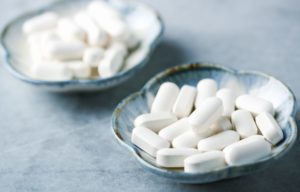When you buy through our links, we may earn a commission. Products or services may be offered by an affiliated entity. Learn more.
Is CBD a Safe and Effective Sleep Aid?
- Cannabidiol (CBD) is commonly used to reduce pain and anxiety.
- CBD may help with sleep, but its effects can vary among individuals.
- While CBD comes in several forms, only a few products are FDA-approved.
- Consult your doctor before use, particularly if you have medical conditions or are taking medications.
A good night’s sleep is essential to your overall health and wellbeing. Experts recommend adults sleep at least seven hours each night. Proper sleep contributes to memory formation, prevents sickness, and ensures you feel well-rested and have energy for the next day. Unfortunately, as many as 70% of Americans report not sleeping the recommended hours.
One increasingly popular strategy for sleeping better is taking cannabidiol (CBD), a derivative of cannabis. CBD is commonly used to improve sleep, but much more research must be done to determine the exact effects CBD has on sleep quality.
What Is Cannabidiol (CBD)?
While there are many different slang terms for this green, narrow-leafed plant, it is scientifically called Cannabis sativa. The word “cannabis” can be used to describe any products made from the plant. Cannabis plants contain multiple chemical compounds, including a group referred to as “cannabinoids.” Out of more than 100 cannabinoids, researchers have primarily studied two that appear to have the greatest impact on humans: cannabidiol (CBD) and tetrahydrocannabinol (THC).
CBD can be legally sold in the U.S. when extracted from hemp and marketed according to relevant regulations. Compared to THC, CBD does not have psychoactive properties and does not have effects that would lead to potential dependency or risk of abuse.
CBD is an increasingly popular substance in the U.S. While many health benefits have been attributed to CBD, in most cases, scientific validity of its effectiveness is still unclear.
What Is Tetrahydrocannabinol (THC)?
Most commonly known effects of cannabis, such as “getting high,” are caused by the cannabinoid, THC. The term “marijuana” specifically refers to parts of the Cannabis sativa plant that contain THC.
Cannabis plants and derivatives that contain less than 0.3% THC are classified as “hemp.” As of 2018, hemp is no longer defined as a controlled substance by the U.S. federal government. As a result, there has been an influx of hemp-related products in the American market, confusingly marketed as CBD products.
Is CBD FDA-Approved?
Only a few cannabis-derived or cannabis-related drug products are FDA-approved in the U.S.:
- Epidiolex: This oral CBD solution was the first drug containing a purified cannabis-derived substance approved by the FDA . The drug is approved for seizure treatment in rare and severe forms of epilepsy, Dravet syndrome, Lennox-Gastaut syndrome, and tuberous sclerosis complex for patients ages two and up.
- Marinol and Syndros: These two drugs contain dronabinol, a synthetic form of THC. They come in capsules or oral solutions. Dronabinol affects the part of the brain that controls appetite, nausea, and vomiting, so the drugs have several therapeutic uses. These uses include the treatment of nausea and vomiting in chemotherapy patients and treatment of weight loss in patients with HIV.
- Cesamet: Cesamet contains nabilone, a synthetic compound with a chemical structure similar to THC. Like dronabinol, this capsule also affects the part of the brain that controls vomiting and nausea . The drug is prescribed to patients receiving chemotherapy who have not responded to other nausea and vomiting treatments.
The FDA has not approved any other CBD drug products. The agency has not determined the safety and effectiveness of cannabis or CBD in the treatment of any particular conditions or disease.
What Forms Can CBD Come In?
There are several common forms of CBD:
- Oral sprays that are applied under the tongue
- Oils and tinctures, sometimes described as drops or droplets
- Vapes and vape juices to use in a vaping pen
- Edible items, such as gummies, chocolates, or cookies, and beverages, such as coffees and teas
- Pills and capsules
- Topical solutions, including lotions, creams, patches, gels, and ointments
What Are Common Doses of CBD?
The FDA doesn’t regulate dosing of non-drug CBD products. As a result, the amount of CBD in products varies widely among forms.
Research shows 300-mg oral doses of CBD can be taken safely on a daily basis for up to six months. One scientific review showed that taking up to 1.5 grams daily was well-tolerated by participants. A subsequent review confirmed that use of 1.5 grams daily for four weeks showed no negative effects.
Unfortunately, the indicated CBD content on a product label is not necessarily the amount that the product actually contains, which may lead people to take more or less CBD than intended. One analysis of 84 CBD products sold online showed that 26% of the products contained less CBD than the label said , while nearly 43% of the products contained substantially more CBD than the label said.
What Are the Effects of CBD?
Research shows that CBD has a calming effect on the nervous system . CBD can also alter mood because it affects the serotonin system. Outcomes vary among people and depend on the product type and dose.
Unlike THC, CBD does not induce a feeling of being “high.” Even large doses of CBD do not produce THC-like effects. Additionally, a few studies have demonstrated that CBD reduces the psychoactive effects of THC.
CBD products may contain higher levels of THC than reported or contain THC that is not reported on the label at all. The extra THC in these products can produce intoxicating effects, which may or may not be desired.
What Health Conditions Can CBD Help With?
So far, CBD’s effectiveness in the treatment of epilepsy is well-supported by research. Other early research suggests that CBD may also help treat anxiety and substance use disorders.
Currently, there is insufficient research to determine the effectiveness of CBD in treating other health conditions. However, preliminary research suggests CBD can help with a number of sleep disorders, including insomnia .
Can CBD Help With Sleep Disorders?
Some people who use CBD for chronic pain report sleeping better. Currently, it is unclear whether these patients sleep better because of the pain relief or because CBD directly affects their sleep. Other initial studies of CBD and sleep disorders suggest positive outcomes. However, not everyone experiences the same sleep benefits with CBD use, and additional research is needed to deepen our understanding of CBD as an intervention for sleep disorders.
Anxiety and CBD
While not a sleep disorder itself, anxiety can contribute to poor quality sleep, insufficient sleep, and sleep disorders. Because CBD calms the nervous system, early research indicates that CBD can be used to treat anxiety-related disorders. One study showed that nearly 80% of participants who used CBD to treat their anxiety reported lower anxiety levels within a month. Sleep initially improved in more than 65% percent of participants, followed by fluctuating results.
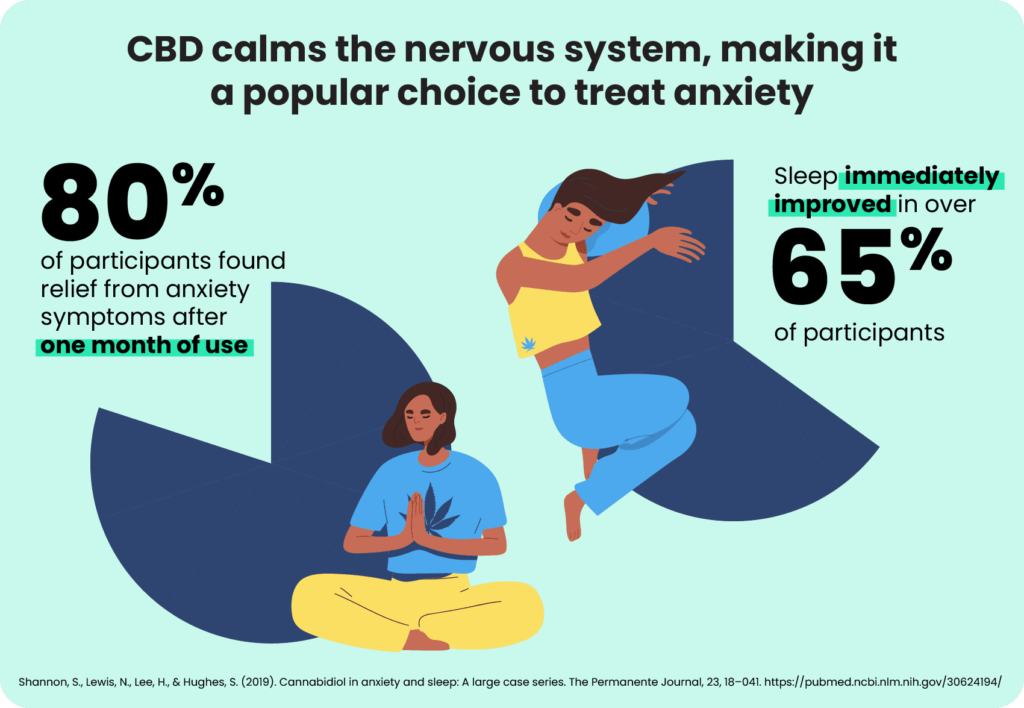
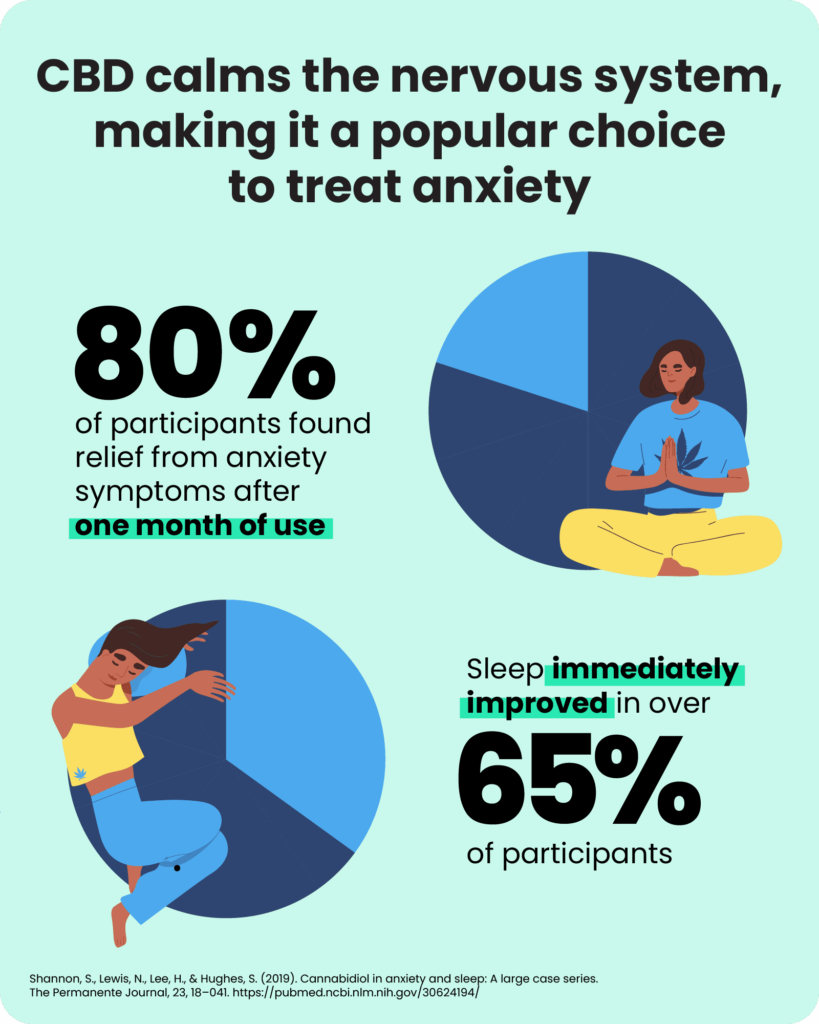
Insomnia and CBD
People who suffer from insomnia experience difficulty falling asleep or staying asleep at night. Because of their history of poor sleep, people with insomnia may suffer from anxiety about getting inadequate sleep, which can then increase sleeplessness at night. Given the potential positive outcomes of CBD treating anxiety, it is speculated that CBD may also help reduce the anxiety associated with insomnia.
What Are the Risks of CBD?
Most negative effects of CBD medications and products are mild. For example, patients who use Epidiolex may experience diarrhea or other gastrointestinal issues. Some people may experience drowsiness when they take CBD. Other negative effects experienced with CBD may be due to an interaction between the CBD and other medications the patient is taking.
Does CBD Interact With Other Prescriptions?
CBD can interact with other prescriptions a person takes. In particular, CBD can slow the liver’s ability to break down certain medications. Additionally, using CBD as well as herbs or supplements can make the patient too sleepy.
Before using any CBD product, consult your doctor. Let your doctor know of any medications, herbs, or supplements you are taking, so they can assess if CBD might cause a negative interaction. Your doctor will be able to inform you if CBD is a viable option to meet your health goals.
References
9 Sources
-
Alger, S. E., Brager, A. J., & Capaldi, V. F. (2019). Challenging the stigma of workplace napping. Sleep, 42(8), zsz097.
https://pubmed.ncbi.nlm.nih.gov/31390041/ -
Food & Drug Law Institute. (2019, February/March). The Legalization of Hemp. Update Magazine.
https://www.fdli.org/2019/02/the-legalization-of-hemp/ -
U.S. Food & Drug Administration. (2018, June 25). FDA approves first drug comprised of an active ingredient derived from marijuana to treat rare, severe Forms of epilepsy.
https://www.fda.gov/news-events/press-announcements/fda-approves-first-drug-comprised-active-ingredient-derived-marijuana-treat-rare-severe-forms -
AHFS Patient Medication Information, The American Society of Health-System Pharmacists. (2016, August 15). Nabilone. MedlinePlus.
https://medlineplus.gov/druginfo/meds/a607048.html -
Bergamaschi, M. M., Queiroz, R. H., Zuardi, A. W., & Crippa, J. A. (2011). Safety and side effects of cannabidiol, a Cannabis sativa constituent. Current Drug Safety, 6(4), 237–49.
https://pubmed.ncbi.nlm.nih.gov/22129319/ -
Iffland, K., & Grotenhermen, F. (2017). An update on safety and side effects of cannabidiol: A review of clinical data and relevant animal studies. Cannabis and Cannabinoid Research, 2(1), 139–154.
https://pubmed.ncbi.nlm.nih.gov/28861514/ -
Bonn-Miller, M. O., Loflin, M., Thomas, B. F., Marcu, J. P., Hyke, T., & Vandrey, R. (2017). Labeling accuracy of cannabidiol extracts sold online. JAMA, 318(17), 1708–1709.
https://pubmed.ncbi.nlm.nih.gov/29114823/ -
Shannon, S., Lewis, N., Lee, H., & Hughes, S. (2019). Cannabidiol in anxiety and sleep: A large case series. The Permanente Journal, 23, 18–041.
https://pubmed.ncbi.nlm.nih.gov/30624194/ -
Babson, K. A., Sottile, J., & Morabito, D. (2017). Cannabis, cannabinoids, and sleep: A review of the literature. Current Psychiatry Reports, 19(4), 23.
https://pubmed.ncbi.nlm.nih.gov/28349316/




